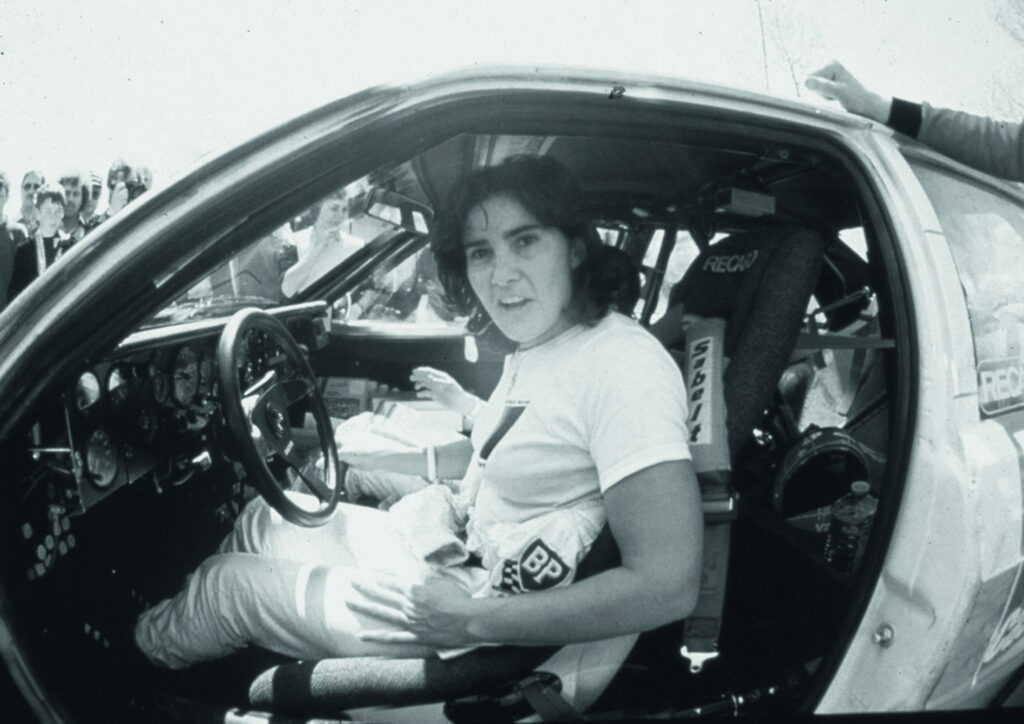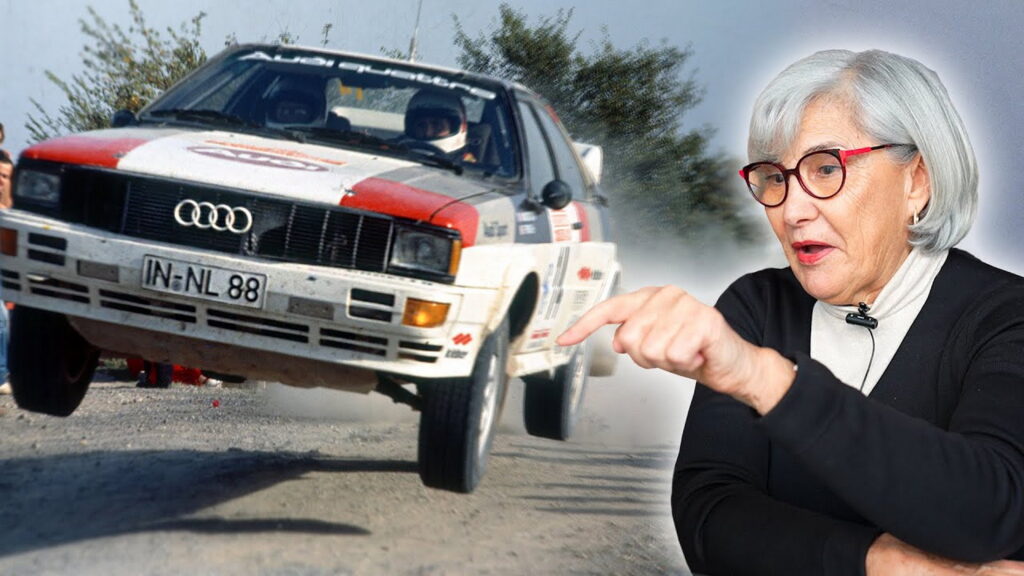The early to mid-’80s are now considered one of rally racing’s golden eras, and Michele Mouton was one of its heroes. Still working in motorsport today as a safety delegate, these days her focus is more on less on victory than on making sure everyone finishes the race.
So it will come as no surprise that, while watching footage of her victory at the 1982 Acropolis Rally, she is struck by how dangerous it all looks. Wearing little more than t-shirts and helmets at the end of some stages, the drivers of the era look vulnerable compared to their modern, heavily protected counterparts. Meanwhile, the fans, lining the track and sometimes on it, look even less safe.
“And you see the people close to the car, you know. Being responsible for safety when I see this picture, it’s really — it makes me crazy,” said Mouton in a recent video for DirtFish Rally School posted shortly after the 2024 Women in Motorsports Summit.
Read: Rivian Makes History As R1T Becomes First EV To Win Rebelle Rally

“The crowd is incredible. They were on the road with us, you know,” she said. “It was part of the game. Nothing we could do. We had to drive, trying not to touch anybody, and that’s all we could do. You feel them on the road, you don’t see very well, but you feel them.”
But driving carefully was even more important in some corners than others. After seeing a half spin, she exclaims that her parents were sitting on that very corner on that very day watching her slide. With a laugh, she says that she didn’t spin for their benefit.
To this day, Mouton works to welcome more women into the world of motorsport, but a look at the current WRC grid proves that the challenge has been difficult.
Mouton is no stranger to tough challenges, saying now, as she did then, that the 1982 Acropolis Rally was one of the the hardest races of her career. Despite that, she persevered and took an important victory that seemed to mean as much to the women of Greece as it did to her.
“You know, when we won, it was really emotional, I would say,” Mouton explains. “It meant a lot in those countries — Portugal or Greece — at that time, women were not equal, and it was more difficult, and for them to see two ladies in the car was something incredible. So really, it was very special.”




